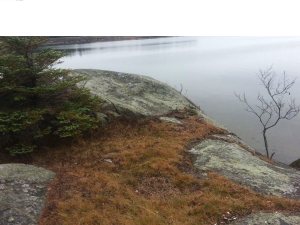(updated 6/7/2016)
Part II picks up where my earlier post on how strong belief can put us in a trance state of which we are unaware, turning us into servants of a belief, usually to our and other people’s detriment.
Exploring how to break trances we have unknowingly entered into requires moving from my preferred intellectual style of analysis to something more concrete. This is because living in the realm of intellect alone is itself a kind of trance
Breaking a trance: A personal example
When I was a young conservative in high school I disapproved of segregation, but opposed the civil rights movement of the time because I “knew” property rights were the strongest guarantor of freedom, and any interference with how people used their property opened the door to tyranny. I was in an ideological trance where those who disagreed were not just mistaken, they served tyranny, either consciously or unconsciously. The stakes could not be higher. Compromise opened the door to tyranny.
When younger I been shown news clips of Communists executing masses of people after revolutions. I was told this is what happens when liberty is lost. Owning property was essential to preserving liberty since I could use it in ways others might not approve of. In turn I might disapprove of others’ use of their property, but they were free to do as they did. This is what freedom for all meant. By seeking to limit people’s use of their property, the civil rights movement was serving the cause of tyranny.
I was captivated by a very strong belief system powered by considerable emotional energy. It was difficult to take nonconforming facts or arguments seriously. They were obstacles to over come or avoid.
One afternoon I was at my grandmother’s house, watching TV by myself, as a newsman was interviewing a Black woman who was involved in sit-ins at private businesses. He asked her why she did this when she knew she would end up arrested and in jail. Her response was unforgettable and decades later I still vividly remember it:
“I don’t want my daughters to grow up the way I did.”
That heartfelt comment cut through my intellectual constructs, touching something deeper. I already thought racial segregation was wrong, but property rights, freedom, and tolerating wrong actions by others were tightly connected. Her argument made no attempt to engage my intellect, it touched my heart. I realized no decent person injured by segregation could accept it for their kids. I could not yet see the intellectual problem in the property rights argument, that would come much later, but I knew in my gut at least in this case it was mistaken.
Looking back now, this was a pivotal event where my empathetic connecting with others’ concrete experience overturned the power of abstract ideas. It weakened a powerful trance in which I had embedded myself. I did not suddenly become a liberal, but I knew my conservatism had no answer to the moral power of her words. Afterwards I could never just assume my ideology automatically had the answers.
One other encounter finished the job of waking up, and again it was not an intellectual argument. I had become friends with another young Republican, Randy, after we both ran for state chairman of the Kansas Teen Age Republicans. I was a senior in high school, a committed conservative (who now kept his mouth shut on civil rights) but still deeply immersed in reading right wing authoritarians even as I was beginning to encounter libertarian literature as well. Randy and I became friends and at one point I told him I thought things had been better when aristocrats dominated society rather than the democratic values we currently sought to live by. Randy disagreed, but did not give an intellectual argument: “I think the best society is one where you would feel OK at the bottom.”
I knew he was right in the same way that Black mother was.
These were the two most politically and ultimately philosophically transformative events of my life, and were not intellectual, they were moral. I did not suddenly become a progressive, rather I began looking at what I believed as open to challenge and exploration. Sometimes it survived those challenges and sometimes it did not. I began to approach ideologies as tools rather than answers. Any tool found wanting can be abandoned.
Three more examples of ideological trance and its overcoming
When he founded the popular blog Balloon Juice, John Cole was a conservative supporter of George Bush. Cole broke away from being a right winger not because he heard a better argument from a liberal, but because he was morally appalled at Jeb Bush’s thuggish and theocratic behavior while governor of Florida during the Terri Schiavo tragedy. Many right wingers followed Bush in viciously attacking her husband. Cole was horrified. He is hardly super liberal today, but he broke decisively with movement conservatism and now embraces many liberal principles. His heart was the reason, not his mind, but because of his heart, his mind was freed from the trance of belief.
Some readers might think I am just picking on the right wing. Here are two examples from the left.
Many Communists who later turned against Communism had spent years in service to their ideal, often suffering imprisonment and worse. The Party had become their life. When they broke with it, it was not from encountering a better argument. It was because they had become morally disgusted. Arthur Koestler broke with the party because of Stalin’s show trials, although he had earlier easily rationalized many violent acts against non-Communists. Afterwards Koestler described what it had been like to be a Communist: “My party education had equipped my mind with such elaborate shock absorbing buffers and elastic defenses that everything seen and heard became automatically transformed to fit a preconceived pattern.”
Miklos Gimes, a leading Hungarian Communist who joined the 1956 Hungarian revolt described the ideological trance in more detail.
“Slowly we had come to believe, at least with the greater, the dominant part of our consciousness, that there are two kinds of truth, that the truth of the Party and the people can be different and can be more important than the objective truth and that truth and political expediency are in fact identical. . . . And so we arrive at the outlook which infected not only those who thought up the faked political trials but often infected even the victims: the outlook which poisoned our whole public life, penetrated the remotest corners of our thinking, obscured our vision, paralysed our critical faculties, and finally rendered many of us incapable of simply sensing or apprehending truth. This is how it was, it is no use denying it.”
Gimes and Koestler described the trance they and many others of their time had succumbed to. It was broken by a moral awakening, not intellectual conversion. Gimes did not survive his change, being hanged by the Soviets, but Koestler went on to arguably enter into a trance almost as bad as what he escaped when he became a violent Zionist as Israel was established. As before, extremist violence finally led him to abandon Zionism and question whether a Jewish state should exist at all.
Trance has nothing to do with the content of the belief, it refers to how we might believe something. We confuse our own identity with loyalty to the belief. An attack on the belief is like an attack on ourselves but for us the belief is bigger than ourselves, and we submerge ourselves in it. Consequently we doggedly defend it, unless our heart is awakened. The mind alone cannot break free.
From the abstract to the concrete
Every abstract system simplifies reality, picking out what matters from what does not. The more we identify with such a system, the more it tells us what matters and encourages us to ignore what does not. Like the people who never see the gorilla cross the basketball court while counting ball passes, we focus on what is supposedly important and ignore the rest – unless it hits us in our face. Only unlike the people watching the gorilla experiment, with ideologies and such we have an emotional commitment to there not being a ‘gorilla’ there.
Abstract terms take on a life of their own, and block our ability to evaluate their actual impact on us and others. “Freedom” and “justice” are good things, but the issue here is not that these words are good, but what baggage do they carry in our understanding of what they mean. As a young conservative “Freedom” meant a certain set of abstract beliefs that blinded me to their concrete results when those results didn’t fit what freedom meant to me. Gimes and Koestler were similarly blinded by what they took to be justice for the working class, so they did not see many acts of injustice, even towards the working class. What freed them, and me, was not an intellectual argument but a personal visceral encounter with a moral violation that led us to grasp something was wrong, no matter what the justification given for it. The heart enables identification with another at a deeper than rational level, and so is immune to the trance of belief.
Religious extremism is the same kind of thing, and afflicts many Christians and Muslims today. But it can be a problem in any religious tradition.
A single heart-opening encounter rarely leads to a complete break, and I think it shouldn’t. We once found something true or alluring in that belief, and there might still be something true or alluring in it once we begin separating ourselves from identifying with it. However, separating ourselves from closely identifying with an ideology opens us to evaluating its arguments more competently. We need not completely reject what we once believed, but it becomes our tool, our road map, rather than we being its tools for manifesting in the world.
The bottom line
Our minds can become clouded in ways only our hearts can wipe clean. We are more fundamentally moral rather than intellectual beings. When an argument uses fear, anger, or suspicion to close our hearts, we become entranced by ideas that may be of great value when treated as tools, but open the door to Hell when we become their tools. This is why cults seek to isolate their members and totalitarian movements seek to create an environment of constant emotional threat, keeping their members from encountering alternative perspectives except as hostile attacks on who they are. When we feel we are under attack it is easy for self-righteousness and fear to block empathy, and when empathy is blocked the power of the heart is cut off at its roots. We remain entranced while thinking we are free.
Many trances
The trances I have described so far are harmful. They make it easier to hurt or even kill others because their concrete impact is masked by the selective perceptions we allow ourselves to experience. But trance as such is not a bad thing and we engage in it all the time. Trance is by no means always negative. It can be very positive, even without considering the many kinds of ritual and possessory trance experiences many of us Pagans engage with.
The 1960s awakened millions of young people to awareness of altered states of consciousness, particularly through the entheogens. It was but a small step to realize that many of our normal activities also involved tinkering with consciousness. Alcohol and coffee both changed awareness. So could music. Consciousness became something to investigate rather than simply take for granted.
A traditional definition of trance describes it as a focus or immersion in a dissociated plane where at least some normal cognitive functions are temporarily disabled. But what we regard as “normal consciousness” is itself an awareness that focuses narrowly. I will never forget the first time I listened to a popular music piece while stoned, and noticed instruments playing I had never noticed before. Afterwards they were still there when I listened. We are consciousness shifters and are the richer for it. So trance considered as perceiving some dimensions of experience and not others is not the problem. We engage in it all the time. But when we think we are free and in a trance and identify ourselves with it, then it is a problem. The trance becomes our reality. Because some “normal cognitive functions are temporarily disabled” we are operating from an impoverished perspective while thinking we are seeing the big picture. If in addition the trance is an ideology, we become tools by which that view manifests in the world, at our and others’ expense.
Focus
During when I wrote my dissertation and for some years afterwards I supported myself as an artist. When I was in the middle of a pen and ink drawing, I was intensely focused on image, pen and paper and nothing else. One night I was working on a drawing of California’s Big Sur coastline while in a Seattle coffee house. It was raining. Suddenly I paused and looked up because I was smelling the spicy scent of the California coast on a sunny day. The smell went away as soon as my attention shifted. I returned to the drawing and before long it returned. If a friend would come by while I was working, it would take me a while to shift mental gears for conversing. Initially I would be inarticulate. I had to waken from my “artist’s trance.”
Selling my artwork required a very articulate and extroverted persona reaching out to engage potential buyers in conversations. When I was in “vendor mode” I experienced the world differently while I lived that role. Again, at the end of the day it would take me time to “shift gears” to my more introverted self. I had taken on the role of the street vendor, and identified with it.
In both these cases the world I lived in when in these trances focused on different things than my ‘day to day reality’. Some things grew large in my field of mental attention and others shrank. My world changed, and in these two cases that change was to my advantage. I did pretty good art and made a living with it.
The field of awareness
Whatever else we might be, we are nodes of awareness finding sense in a world far beyond our imagining. Our road maps to this world, ways of acting or perceiving, which we are taught when young and then hopefully modify as we live our lives, are always partial. Road maps are maps, not the territory, and every map has what the map maker found to be important, and leaves out extraneous information. A road map of Yosemite is different from a topographical map, but one map is not better than the other except for the purposes of particular map readers. The same is true with ideologies and religious systems. They can be very good maps, and still not the entire picture. (Of course they can also be lousy maps.)
When I enter into a healing ceremony where an entity works through me to help another, I am in a different world using a different road map than when I am typing these words. In both cases I will not notice the ticking of a clock or chirping of a bird, both of which I hear if I pause and pay attention to that kind of thing.
When I can deliberately shift from one to another, these states of awareness are my tools, and when I cannot, I am theirs. The ‘I’ that does this is our awareness, an awareness that is potentially linked to everything that is, as mystical experiences have demonstrated throughout history.
Our hearts, which for me seem far closer to the core of reality than our abstracting minds, are our best guide to making our way in such a world, and creating new perspectives on it in our lives. Our hearts enable us to create worlds within our lives with as much beauty and love as we can accomplish given who we are and the times in which we live. Perhaps all who partake of these accomplishments create and enrich the Summerland, or whatever it is that exists on the other side. But whether we enhance it or not, we certainly enhance our own lives and the worlds in which we live when we act with kindness, love, and beauty. And we immunize ourselves from becoming the tools of ideologies and beliefs that are at most abstract simplifications of what we can experience within our lives.
Many teachers from many traditions have said don’t follow a path without heart. I think that is the universal remedy to the problem of destructive trance.
To return to the issue with which I started Part I: global warming deniers stand out in their complete distrust of nearly all scientists who study these issues. They assume their motives are bad. They cherry pick apparent counter examples to the warming thesis, and do so while ignoring contexts that make all the difference. In their fear and anger of scientists’ supposed motives they refuse to take seriously, or even notice, the evidence scientists marshal to make their case. Their distrust and anger hardens their hearts because they ‘know’ any evidence they are wrong has been distorted by people with bad motives. Until their hearts can open enough to recognize the sincerity and care of scientists’ work they simply will not see what is so clearly in front of all the rest of us.
—–
This piece has been polished and clarified June 6, with another addition June 7.
















